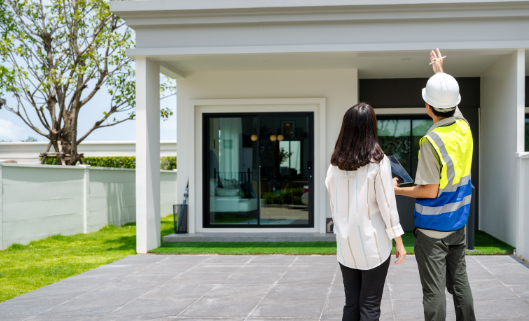Purchasing a home is one of the most significant financial decisions you’ll ever make, and a home inspection is a crucial part of the process. But how much does a home inspection actually cost? Understanding the average home inspection cost, as well as the factors that influence pricing, can help you plan ahead and avoid unexpected expenses.
In this article, we’ll break down what you can expect to pay for a home inspection, the factors that influence the cost, and tips on budgeting for this essential service.
What is the Average Home Inspection Cost?
The cost of a home inspection can vary depending on several factors, but in the United States, the average price typically ranges from $300 to $500 for a standard home inspection. Some inspection companies charge as little as $200, while others may charge upwards of $1,000, particularly for large or complex properties.
The cost can be influenced by several factors, including the size, age, and location of the home, as well as the types of inspections you request.
Factors That Affect Home Inspection Costs
Several key factors can affect the cost of your home inspection. Understanding these factors will help you get a more accurate estimate and avoid surprises.
- Size of the Home
Larger homes typically cost more to inspect due to the increased time and effort required to thoroughly assess the property. A small condo or townhouse might only cost $250 to $350, while a large, multi-story house could cost $500 or more. - Age of the Property
Older homes often come with more issues and may require a more detailed inspection. This could increase the cost, especially if the home has unique features like outdated electrical systems, roofing, or plumbing. - Location
Home inspection prices can vary based on geographic location. Inspections in major cities or areas with high living costs tend to be more expensive. Conversely, rural or suburban areas might offer lower prices, but this isn’t always the case. - Specialized Inspections
While a standard home inspection looks at the overall structure and systems of the house, additional specialized inspections (e.g., pest, radon, mold, or sewer line inspections) can add to the overall cost. For example, a termite inspection might cost an additional $50 to $150, while a radon test could add $100 to $200. - Inspection Complexity
Certain homes, such as those with unique features like a swimming pool, extensive landscaping, or a septic system, may require more detailed inspections. Similarly, homes with multiple stories, complex roofs, or additional buildings (e.g., guest houses, garages) can increase the cost.
What’s Included in a Home Inspection?
A home inspection typically includes a thorough evaluation of the property’s structure, systems, and components. The inspector will generally check:
- Exterior: Roof, siding, windows, and foundation
- Interior: Walls, ceilings, floors, and doors
- Plumbing: Pipes, fixtures, and water pressure
- Electrical Systems: Wiring, outlets, and breaker panels
- HVAC: Heating, ventilation, and air conditioning systems
- Appliances: Built-in appliances like dishwashers, stoves, and microwaves
The inspector will then provide a detailed report, which includes a list of any issues or potential concerns that need attention. This report can help you decide whether to negotiate with the seller for repairs or a lower purchase price.
How to Save on Home Inspection Costs
While it’s important not to cut corners when it comes to home inspections, there are ways to manage costs:
- Get Multiple Quotes
Just like any service, prices for home inspections can vary. It’s a good idea to get quotes from a few local inspectors to compare prices and services. - Bundle Inspections
If you’re considering additional inspections (e.g., termite, radon, or mold), ask if you can bundle them with your standard home inspection. Many companies offer package deals, which could save you money in the long run. - Negotiate
In some cases, you may be able to negotiate the price of the inspection with the seller or have them cover the cost as part of the overall deal. While this isn’t always an option, it’s worth discussing if you’re buying a home in a competitive market. - Don’t Skip It
Skipping a home inspection to save money can be a costly mistake. A proper inspection can uncover issues that might cost thousands of dollars to repair. Investing in an inspection can help you avoid expensive surprises down the road.
Additional Costs to Consider
Besides the inspection itself, there may be other costs involved in the home-buying process. Some additional fees you might need to budget for include:
- Repairs: If the home inspection reveals issues that need fixing, you may have to negotiate repairs with the seller or pay for repairs yourself.
- Appraisal Fees: Many lenders require a home appraisal to determine the value of the property. This can cost anywhere from $300 to $600.
- Closing Costs: Closing costs, which can include title insurance, loan origination fees, and other expenses, typically range from 2% to 5% of the home’s purchase price.
Conclusion
The average home inspection cost typically ranges between $300 and $500, but the final price will depend on factors like the size, age, and location of the home, as well as any specialized inspections you request. While this may seem like an added expense, a home inspection is an essential step in the home-buying process that can save you money in the long run by identifying potential problems before you sign the dotted line.
By understanding the factors that influence the cost and budgeting accordingly, you can ensure that you’re prepared for this important step in your home-buying journey.
please click here to follow us.

